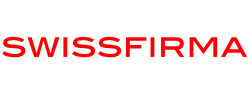
Want to know more?
Sign up for a free seminar with our lawyer and get answers to your questions about business and taxes in Switzerland!
This event is limited in a number of participants, and the principle of "whoever registers first, gets the service first" applies.
How to Establish a Business in Switzerland

If you have already created a business plan to set up your business in Switzerland, you want to know what options are available for you and what to choose. In order to launch your business, you should determine the name of your company and think through its legal registration.
You have three main options:
You can set up your business without creating your own company by becoming an independent. All business activities must be registered at the local Commercial Registry if you get at least 100,000 Swiss francs annually.
You have three main options:
- Registering a company;
- Registering as an independent;
- Registering as a partner in a partnership.
You can set up your business without creating your own company by becoming an independent. All business activities must be registered at the local Commercial Registry if you get at least 100,000 Swiss francs annually.
Naming Your Company
It is prohibited to have two identically named businesses. There is the federal registry with the list of all business names. When you create the name of your company, make sure that there no identical option used by someone else. You must have something unique.
Registering as an Independent
As an independent, you will be registered on your own name, but adding a trading name is also possible. You will only need to fill out a few forms. Usually, you can use online registration, but in order to verify your signature, you will have to go to the local registry. Another option to do it is using notary services. The price for the initial registration determined by the federal government is 120 Swiss francs, but you may also have to pay additional fees to cantons.
The following are all-in fees in some Swiss locations (Swiss francs):
The following are all-in fees in some Swiss locations (Swiss francs):
- Geneva — 190;
- Vaud — 240;
- Zurich — from 200 to 300.
Choosing a Partnership
You can become a partner in a partnership that must be registered as a Collective Company (Société en Nom Collectif). Your registration and cooperation will be based on the agreement between partners. You will need to use notary services to create it. The initial registration will cost you 240 Swiss francs.
The following are all-in fees for this type of registration in some Swiss locations (Swiss francs):
Pros:
The following are all-in fees for this type of registration in some Swiss locations (Swiss francs):
- Vaud — from 390 to 470;
- Geneva — 420.
Pros:
- Easy to establish;
- No min. capital;
- No company statutes required;
- Easy administration.
- Partners carry personal liability in case of the bankruptcy.

Establishing a Company
Establishing your business in this country is relatively expensive, which is associated with the following:
There are two options to choose from:
- Min. capital requirements;
- Notary and registry fees.
There are two options to choose from:
- Society with Limited Responsibility;
- Anonymous society.
Society with Limited Responsibility
Society with Limited Responsibility (Societé à Responsabilité Limité) requires at least 20,000 Swiss francs for the company to be established because it is the min. capital requirement. The information of the company's shareholders is available publicly.
The statutes are required for setting up a Society with Limited Responsibility. The documents must include the following information:
You will also have to provide proof of funding. You can give the required amount in trust at a bank, which then issues a document proving it. Once the registration is completed, the money will be transferred to the official business account.
Pros:
The statutes are required for setting up a Society with Limited Responsibility. The documents must include the following information:
- The company's type of activity;
- Details on founders, shareholders, and shares;
- How the company will be managed.
You will also have to provide proof of funding. You can give the required amount in trust at a bank, which then issues a document proving it. Once the registration is completed, the money will be transferred to the official business account.
Pros:
- Easier to establish than Anonymous Society;
- Limited liability;
- Less capital requirements than for Anonymous Society.
- Company articles are required;
- More difficult to establish than for independents;
- Certain capital requirements;
- Information on shareholders is available publicly;
- Changing ownership is more complicated than for Anonymous Society;
- Double taxes on dividends (taxes on company profits, and then on dividends as on personal income).
Anonymous Society
Anonymous Society (Societé Anonyme) is usually chosen by large companies. Unlike Society with Limited Responsibility, it does not require the information of shareholders to be available publicly.
A min. capital requirement for this type of company is 100,000 Swiss francs, but only 50% must be paid while the company is going through the registration procedure. Shareholders of the company carry personal liability for the remaining 50% in the case of the company's financial problems. Registration costs are similar as for Society with Limited Responsibility.
The statutes are required for setting up Anonymous Society. The document must include the following information:
Pros:
A min. capital requirement for this type of company is 100,000 Swiss francs, but only 50% must be paid while the company is going through the registration procedure. Shareholders of the company carry personal liability for the remaining 50% in the case of the company's financial problems. Registration costs are similar as for Society with Limited Responsibility.
The statutes are required for setting up Anonymous Society. The document must include the following information:
- The type of activity of the company;
- Details on co-founders, shareholders, and shares;
- How the company will be managed.
Pros:
- Information about shareholders is not available publicly;
- Limited liability;
- Easier to change ownership than for Society with Limited Responsibility.
- Company articles are required;
- More difficult to establish than for independents;
- The capital requirement is higher than for Society with Limited Responsibility;
- Double taxes on dividends.
Company Establishment Process
There must be a director who is a resident of the country, and if you are not in Switzerland and only planning on moving there, you may encounter a range of problems. However, you can use the services of the companies allowing finding resident directors to hire. Of course, this is associated with extra expenses and more paperwork.
The price for the initial registration fee is 600 Swiss francs, but there are also fees added by cantons, which may increase the total price up to 1,000 Swiss francs. There may also be notary fees ranging from 500 to a few thousand Swiss francs. The exact fees are calculated based on the complexity of the process and canton. For instance, in Vaud and Geneva, such fees are higher if compared to those found in Zurich and other locations.
Using the services of a registered notary is a must because this is how you can ensure that all of your documents match the country's requirements. This will also help you to prepare everything quicker. Since 2011, you can choose any notary in Switzerland regardless of the location of your canton. There are some nuances, for instance, a notary working in Zurich may not know the French languages, and in Geneva or Vaud, you will have to provide all of the documents in French.
The price for the initial registration fee is 600 Swiss francs, but there are also fees added by cantons, which may increase the total price up to 1,000 Swiss francs. There may also be notary fees ranging from 500 to a few thousand Swiss francs. The exact fees are calculated based on the complexity of the process and canton. For instance, in Vaud and Geneva, such fees are higher if compared to those found in Zurich and other locations.
Using the services of a registered notary is a must because this is how you can ensure that all of your documents match the country's requirements. This will also help you to prepare everything quicker. Since 2011, you can choose any notary in Switzerland regardless of the location of your canton. There are some nuances, for instance, a notary working in Zurich may not know the French languages, and in Geneva or Vaud, you will have to provide all of the documents in French.

Registration for Taxes
Employees of businesses must be registered with a local compensation fund that will collect a range of social taxes and pay various social payments to employees, in case of disability, unemployment, and retirement.
Companies must provide their employees with insurance in case of accidents, which can be obtained from a private insurance company.
All companies with at least ten employees must provide accounts auditing annually. All businesses with at least 100,000 Swiss francs annually must register for VAT.
Independents and companies pay the following taxes:
Companies must provide their employees with insurance in case of accidents, which can be obtained from a private insurance company.
All companies with at least ten employees must provide accounts auditing annually. All businesses with at least 100,000 Swiss francs annually must register for VAT.
Independents and companies pay the following taxes:
- Federal taxes that are the same in all locations;
- Cantonal taxes depend on the location of your company;
- Municipal taxes also depend on the location of your company.
Trademarks
You can trademark your brand for protection purposes, which will cost 550 Swiss francs. It can be done at the Swiss Federal Institute of Intellectual Property's website. First of all, you should check that the trade name that you have chosen for your service or product is not used by someone else. Duplicate trade names are prohibited, and if there is a problem with that, your trademark may be canceled. You should register your trademark in all countries where you plan to use it. More information is available at the WIPO located in Geneva. There is a risk of receiving fake invoices, and if you are not sure about something, you should recheck it.

EasyGov
EasyGov is an online tool introduced in 2007. It has been specially designed for helping people with establishing a company and completing some administrative tasks. In order to use it, it is required to have an ID that can be obtained right on the EasyGov website. Although the tool significantly simplifies the procedure, notary services are still required.
Accounting, Reporting, and Administration
All types of business have to calculate their revenue, expenditures, and profit and provide relevant reports annually. Accounting can be conducted in spreadsheets unless it makes thing too complicated. It is the country with the intensive administration and a range of nuances. It is possible to opt for software programs to match the country's requirements, for instance, Winbiz, which is an advanced cloud-based platform available in the English language.

